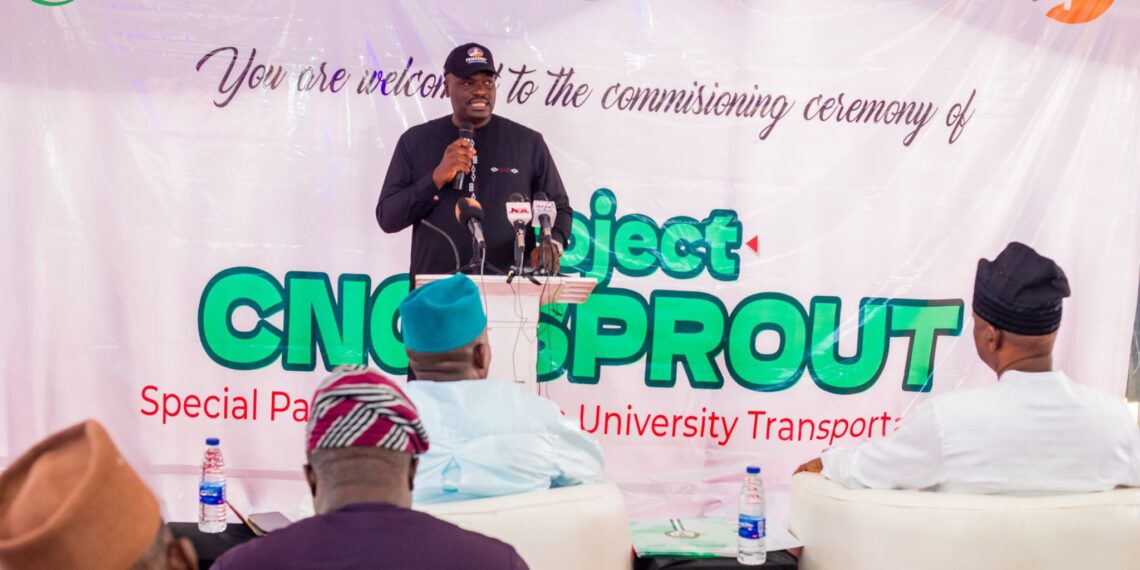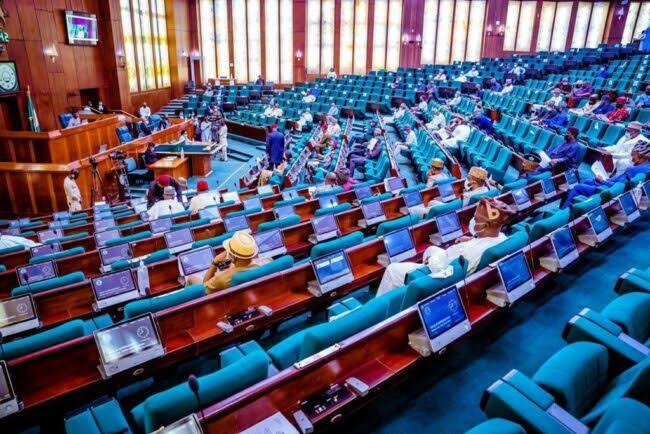The Federal Government of Nigeria officially launched Project SPROUT (Special Palliative Relief of University Transportation) on May 29, 2025, at a vibrant ceremony in Abuja. This innovative initiative, spearheaded by the Presidential Compressed Natural Gas Initiative (PCNGI), is set to transform transportation within Nigeria’s tertiary institutions by introducing cleaner, more affordable, and eco-friendly mobility solutions. With the deployment of Compressed Natural Gas (CNG)-powered buses and tricycles to university campuses, Project SPROUT promises to alleviate the financial burden on students and staff while advancing Nigeria’s clean energy agenda.
The launch of Project SPROUT comes at a critical time for Nigeria. The removal of fuel subsidies in mid-2023 led to a sharp rise in transportation costs, hitting students and academic communities particularly hard. Long queues at fuel stations, skyrocketing fares, and the economic strain on young Nigerians sparked widespread calls for sustainable solutions. The Federal Government, through the PCNGI, responded with Project SPROUT, an initiative designed to provide immediate relief while aligning with global trends toward greener energy.
By leveraging CNG—a cleaner and more cost-effective alternative to traditional petrol and diesel—Project SPROUT aims to reduce transportation costs by up to 50% for students and staff in tertiary institutions. CNG-powered vehicles emit significantly lower levels of carbon dioxide and pollutants, making them a cornerstone of Nigeria’s commitment to reducing its carbon footprint and combating climate change. The initiative is a testament to the government’s dual focus on economic empowerment and environmental sustainability.
Rolling Out Across 20 Universities
The first phase of Project SPROUT targets 20 universities, strategically selected to ensure balanced representation across Nigeria’s geopolitical zones—10 in the northern region and 10 in the southern region. These institutions, which serve as hubs of academic excellence and innovation, will receive a fleet of CNG-powered buses and tricycles tailored to meet the unique mobility needs of their campuses. The vehicles are designed to facilitate seamless intra-campus transportation, ensuring students and staff can move between lecture halls, hostels, libraries, and administrative buildings with ease and affordability.
The initiative also includes the establishment of CNG refueling stations on or near university campuses, ensuring a steady supply of fuel for the vehicles. These stations will be supported by partnerships with private energy firms and local stakeholders, creating a sustainable ecosystem for CNG adoption in the education sector. The government has assured that the refueling infrastructure will be scalable, with plans to expand to more institutions in subsequent phases.
Empowering Youth and Fostering Innovation
Beyond affordability and sustainability, Project SPROUT is a catalyst for youth empowerment and skill development. The initiative incorporates a robust training component, where students in engineering, technology, and related fields will gain hands-on experience in CNG vehicle maintenance, energy systems, and green technology. By equipping young Nigerians with technical skills, the program aims to prepare them for careers in the burgeoning clean energy sector, fostering a new generation of innovators and problem-solvers.
At the launch event, the Minister of Education emphasized the transformative potential of Project SPROUT, stating, “This is more than just a transportation program; it’s an investment in our youth and our planet. By integrating clean energy solutions into our universities, we are not only easing the burden of transportation costs but also inspiring students to lead Nigeria toward a sustainable future.”
A Collaborative Effort for Lasting Impact
Project SPROUT is a collaborative effort involving multiple stakeholders, including the Federal Ministry of Education, the PCNGI, the National Universities Commission (NUC), and private-sector partners in the energy and transportation industries. The initiative has also garnered support from university administrations, student unions, and environmental advocacy groups, who see it as a step toward a more inclusive and sustainable academic environment.
The PCNGI, which has been at the forefront of promoting CNG adoption across Nigeria, views Project SPROUT as a flagship program to demonstrate the viability of clean energy in public institutions. “CNG is the future of transportation in Nigeria,” said a PCNGI spokesperson. “It’s cheaper, cleaner, and more sustainable. By starting with our universities, we’re setting a precedent for other sectors to follow.”
The launch of Project SPROUT is a beacon of hope for a nation grappling with economic challenges and environmental imperatives. By prioritizing the needs of its youth and investing in sustainable solutions, Nigeria is paving the way for a brighter, greener future—one campus at a time.
Join our Whatsapp channel to stay updated always!


